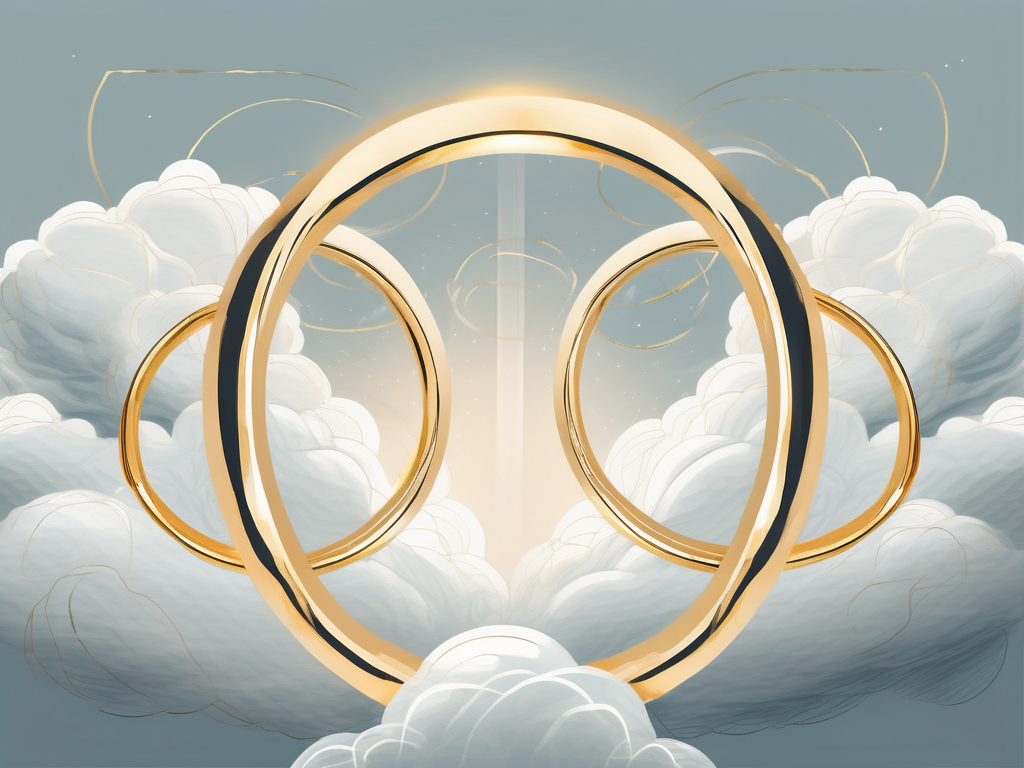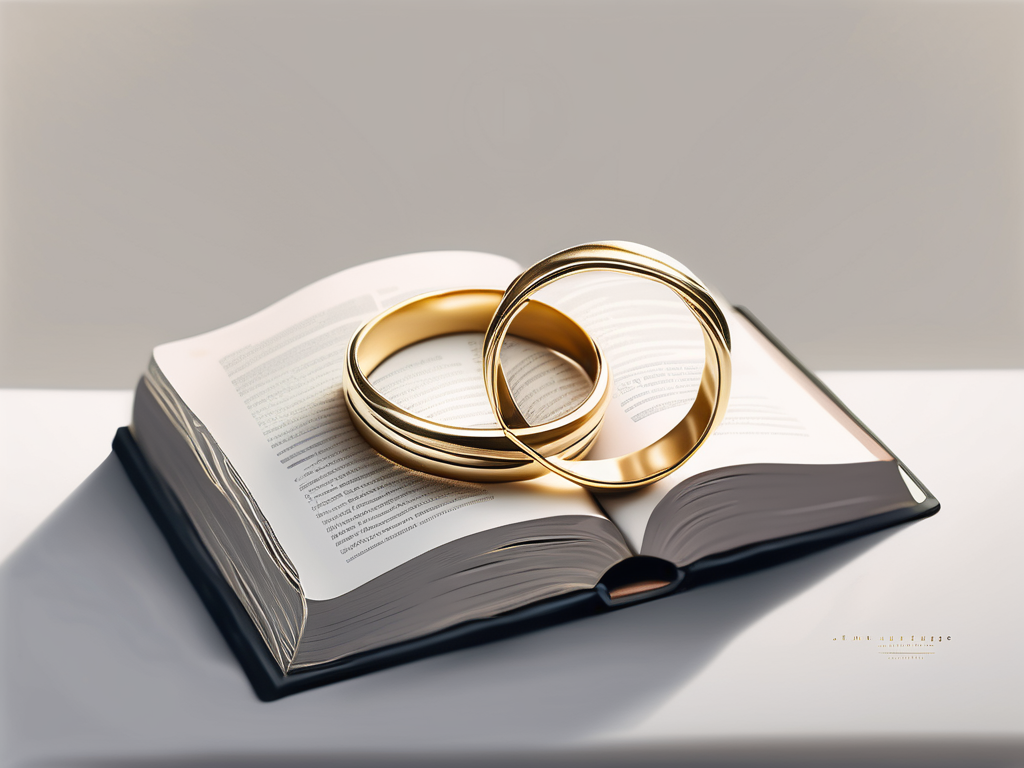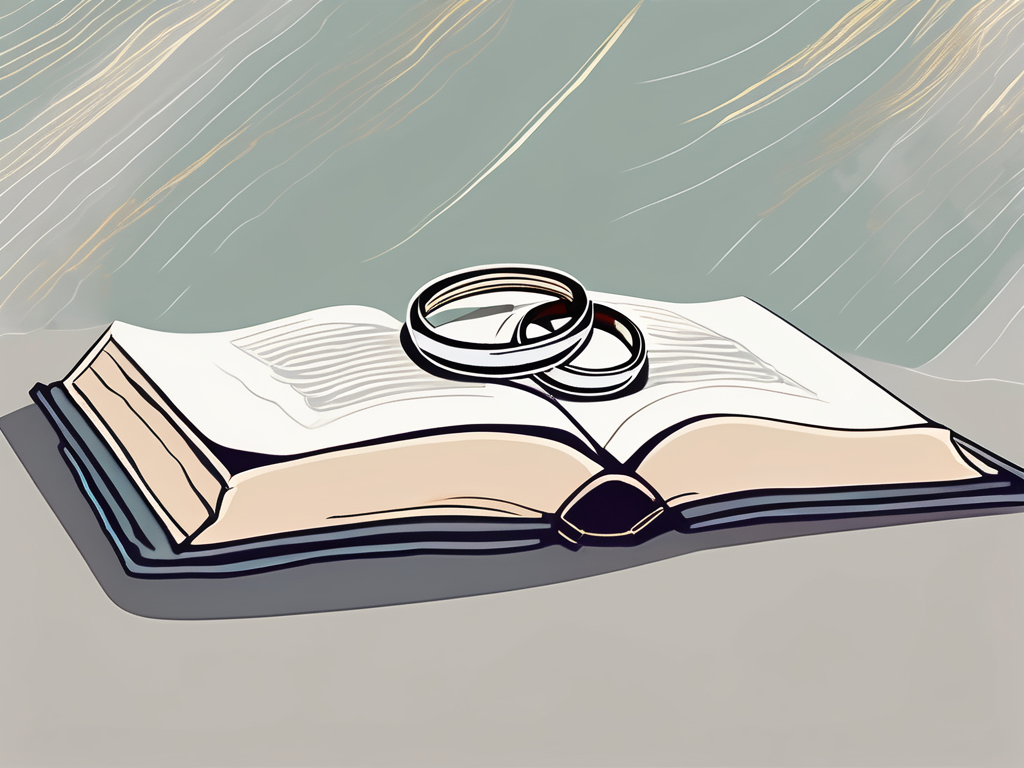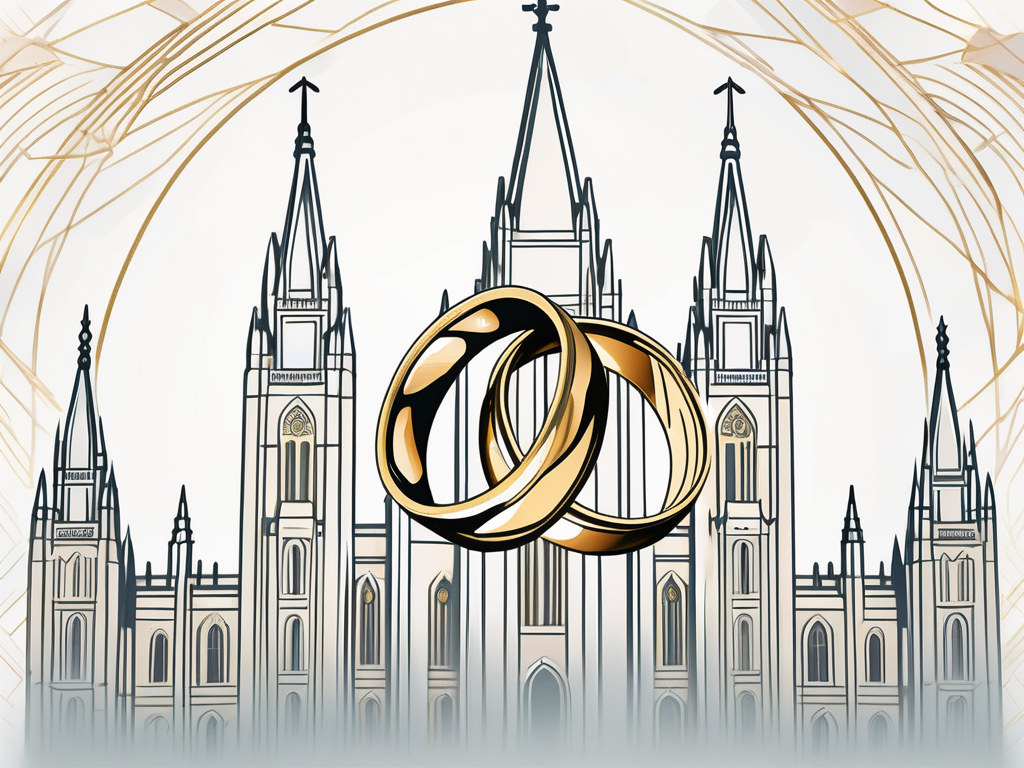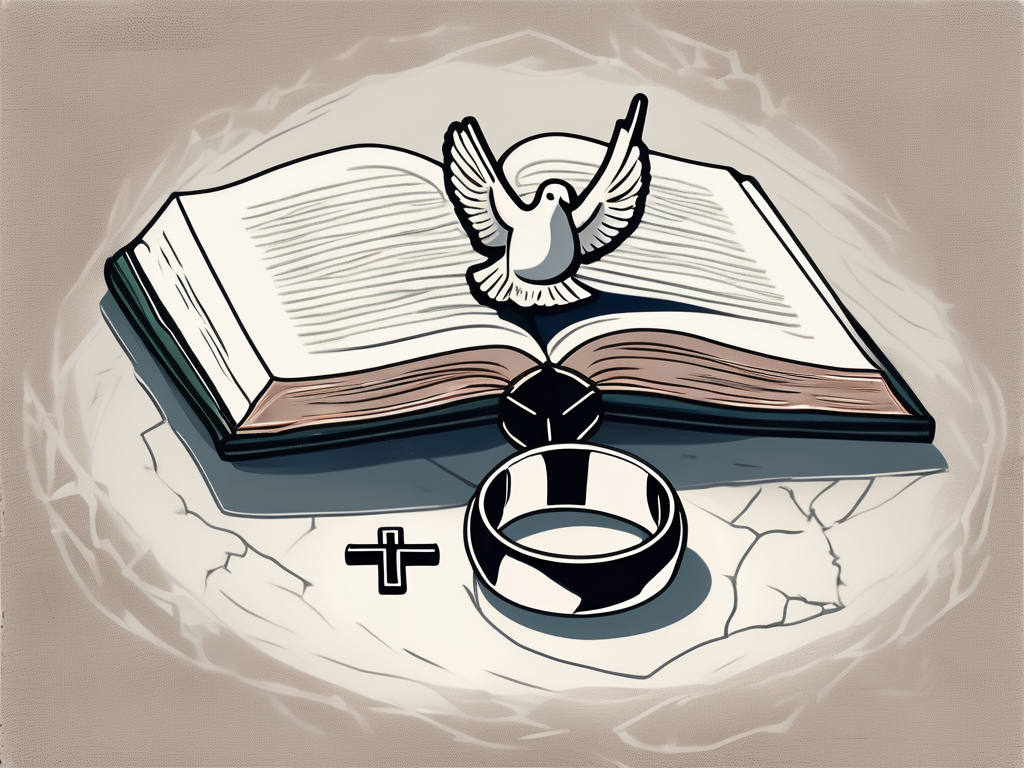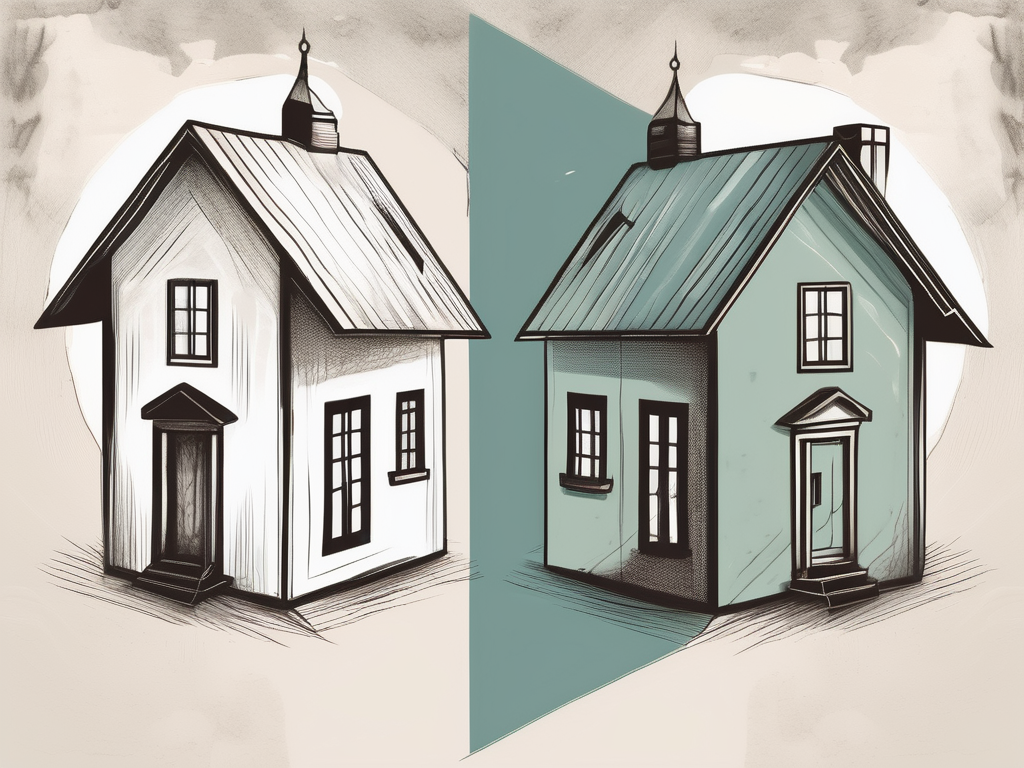Jewish marriages have a rich history and are filled with fascinating traditions and customs. In this article, we will explore ten interesting facts about Jewish marriages that will give you a deeper understanding of this important aspect of Jewish culture.
Understanding the Significance of Jewish Marriages
One of the most significant aspects of Jewish life is the institution of marriage. It is not just a union between two individuals, but also a connection between families and a commitment to the Jewish community. Jewish marriages are more than just a celebration; they serve as a way to strengthen the Jewish faith and preserve Jewish traditions.
The Role of Jewish Marriages in Jewish Culture
Jewish marriages play a crucial role in the preservation of Jewish culture. They are seen as a way to pass down traditions and values to future generations. Jewish couples aim to create a home that reflects Jewish customs and beliefs, ensuring the continuity of Jewish identity.
Within Jewish culture, marriage is not solely about the union of two individuals; it is a merging of families and a celebration of heritage. The wedding ceremony itself is a testament to the importance of community and the bonds that tie Jewish people together. From the moment the couple stands under the chuppah, a symbol of their new home, they are surrounded by loved ones who bear witness to their commitment.
Furthermore, Jewish marriages often involve various rituals and customs that have been passed down through generations. These traditions serve as a reminder of the rich history and shared experiences of the Jewish people. From the breaking of the glass to the recitation of traditional blessings, each element of the ceremony holds deep meaning and significance.
The Historical Context of Jewish Marriages
The practices and rituals found in Jewish marriages have been shaped by centuries of history. From biblical times to the present day, Jewish marriages have carried on age-old traditions and adapted to the changing world. Understanding the historical context helps us appreciate the depth and significance of Jewish marriage customs.
In ancient times, Jewish marriages were often arranged by families, with the goal of strengthening social and economic ties. While the concept of arranged marriages has evolved over time, the emphasis on compatibility and shared values remains a fundamental aspect of Jewish unions. Today, couples often have the freedom to choose their partners, but the influence of family and community is still highly valued.
Throughout history, Jewish marriages have also faced challenges and adversity. From persecution to diaspora, the Jewish people have endured countless hardships, yet their commitment to marriage and family has remained steadfast. In times of struggle, the unity and support found within Jewish marriages have served as a source of strength and resilience.
As Jewish communities have spread across the globe, the customs and traditions associated with Jewish marriages have evolved and adapted to different cultural contexts. From the Sephardic Jews of Spain to the Ashkenazi Jews of Eastern Europe, each community has added its unique flavor to the tapestry of Jewish marriage customs.
Today, Jewish marriages continue to be a vibrant and cherished part of Jewish life. They are a testament to the enduring strength of Jewish culture and the commitment to passing down traditions from one generation to the next. By understanding the significance of Jewish marriages, we gain a deeper appreciation for the rich heritage and values that shape the Jewish community.
The Intricacies of Jewish Wedding Ceremonies
From the chuppah to the breaking of the glass, Jewish wedding ceremonies are filled with symbolism and meaningful rituals. Each element of the ceremony holds deep significance and represents different aspects of the couple’s commitment to each other and their faith.
Let’s delve deeper into the fascinating world of Jewish wedding ceremonies and explore the rich symbolism and traditions that make them so unique.
The Symbolism in Jewish Wedding Rituals
Every step of a Jewish wedding ceremony is imbued with symbolism. These rituals not only celebrate the union of two individuals but also connect the couple to their ancestors and reinforce their Jewish identity.
One of the most well-known rituals is the bride circling the groom seven times. This act represents the creation of a new family unit and symbolizes the bride’s protective role in the marriage. As she completes each circle, she envelops the groom in her love and commitment.
Another significant element is the chuppah, a canopy under which the couple stands during the ceremony. The chuppah symbolizes the home the couple will build together, open on all sides to represent the hospitality they will extend to family and friends. It also serves as a reminder of the Jewish value of hospitality and the importance of creating a warm and welcoming environment.
Breaking the glass is yet another powerful symbol in Jewish weddings. As the groom shatters the glass under his foot, it represents the destruction of the Holy Temple in Jerusalem and serves as a reminder of the fragility of life. It also signifies the seriousness of the commitment the couple is making and the irreversible nature of marriage.
The Importance of the Ketubah
A ketubah is a marriage contract that outlines the rights and responsibilities of the husband towards his wife. It serves as a declaration of the couple’s love and commitment to each other and is signed by witnesses. The ketubah is often displayed prominently in the couple’s home, serving as a constant reminder of their marriage vows and the promises they made to each other.
The ketubah is not just a legal document but also a work of art. It is often beautifully decorated with intricate designs and calligraphy, reflecting the couple’s unique style and personality. Many couples choose to commission a ketubah that is personalized to their love story, making it even more meaningful and special.
Throughout history, the ketubah has evolved to reflect the changing roles and dynamics within Jewish marriages. Today, many couples choose to include egalitarian language in their ketubah, emphasizing the equal partnership and mutual respect that is essential in a modern marriage.
As you can see, Jewish wedding ceremonies are not only a celebration of love and commitment but also a reflection of Jewish values and traditions. Each ritual and symbol carries deep meaning and connects the couple to their heritage. It is this richness of tradition and symbolism that makes Jewish weddings truly unique and memorable.
The Jewish View on Marriage and Family
Jewish tradition places great importance on marriage and family. The concept of shalom bayit, meaning “peace in the home,” highlights the ideal relationship between spouses. According to Jewish teachings, a harmonious marriage sets the foundation for a strong and vibrant Jewish community.
The Concept of Shalom Bayit
Shalom bayit encompasses more than just the absence of conflict; it is about creating an environment of love, respect, and understanding within the family unit. This concept underscores the importance of communication, compromise, and mutual support in maintaining a healthy and happy marriage.
The Role of the Wife and Husband in Jewish Marriages
In Jewish marriages, both the wife and husband have important roles to fulfill. The wife is honored as the akeret habayit, the foundation of the home, and is responsible for creating a warm and nurturing environment. The husband, as the provider and protector, takes on the responsibility of supporting his family.
Unique Jewish Marriage Traditions
Besides the well-known wedding traditions, such as the breaking of the glass, Jewish marriages also incorporate lesser-known customs that add depth and meaning to the celebration.
The Practice of Yichud
Yichud is a private moment the couple shares immediately after the wedding ceremony. It allows them to spend a few precious minutes alone, away from the crowd, and begins their journey as a married couple in seclusion. This cherished tradition gives the couple an opportunity to connect on a deeply personal level before joining their guests for the celebration.
The Meaning Behind the Breaking of the Glass
At the conclusion of a Jewish wedding ceremony, the groom breaks a glass with his foot. This act serves as a reminder of the destruction of the Jewish temple in Jerusalem and signals the seriousness of the commitment being made. It also evokes the idea that even at the happiest of occasions, Jews should remember and mourn the loss of the temple.
Modern Jewish Marriages
While Jewish marriages are firmly rooted in tradition, they have also evolved to reflect the changing times and realities of modern life.
How Jewish Marriages Have Evolved Over Time
Jewish marriages have adapted to various social, cultural, and legal changes throughout history. The roles of women have expanded, interfaith marriages have become more common, and alternative wedding practices are emerging. These changes reflect a dynamic Jewish community that is open to evolving while still maintaining its core values.
The Influence of Modern Society on Jewish Marriages
As with any religious or cultural tradition, Jewish marriages are influenced by the broader society in which they exist. Globalization, gender equality, and shifting family dynamics all play a role in shaping modern Jewish marriages. These influences often result in a beautiful blend of tradition and contemporary values.
By delving into the significance, history, rituals, and evolution of Jewish marriages, we gain a deeper appreciation for the role they play in Jewish culture. Whether you are Jewish or not, understanding these fascinating facts can enhance your knowledge and appreciation of this rich and enduring tradition.

